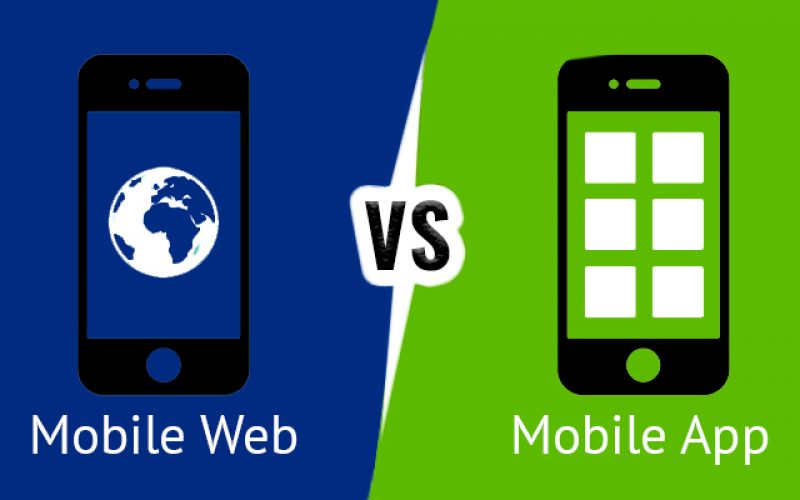We see a surge in the development of native mobile applications that serve different purposes. On the other hand, every website developed today follows the thumb of rule of being responsive.
A responsive website functions seamlessly on laptops and mobile devices alike. Means the resolution, content layout, images etc. adjust to the device being used, be it desktop, smartphone or a tablet. Mobile websites and native apps differ a lot depending upon what they have to offer and ease of access.
But a lot is changing on the scene and it’s impossible to point out a clear winner in all domains. Before we decide which is better, let’s discuss the differentiating factors between the two.
Development
It’s a known fact that app development takes a long time. Even after you spend months waiting for your mobile application to come through, it might not be at par with the developers licensing norms of Android and iOS respectively.Once developed, a mobile app needs regular updating as per the changes in OS versions being used. It’s not a future proof deal.
On the contrary, a mobile website needs a good responsive theme that’s good for desktops and mobile devices. Once you work on that, a great looking responsive website design Toronto is ready within a week or two. And it’s much cheaper than native app development.
Marketing
Websites use the free marketing place, the internet. Just business and services advertisement is needed and viewers will find you. Also, internet marketing like SEO, SMM, SMO, and email marketing plays a major role in attracting visitors. And it works incredibly.
When Uber launched its mobile app, it literally directed its users in that direction by cancelling phone booking of rides. And it was a positive move as the dedicated mobile app was way more efficient and convenient. Now, there’s no other way of booking a ride with Uber. But most apps go unnoticed in the huge pool where app stores are the only way to locate the one you need.
User Interface
Here, mobile apps take the lead. You have direct control over an app’s user interface, while a mobile website depends largely on the theme being used.
Where mobile applications lack?
On the security front, mobile applications are vulnerable as compared to mobile websites. It’s clear by the fact that most people do online transactions through their desktops or mobile websites. Every app further requests an access to mobile data before installation that also exposes critical data to threat. Most data breaches have been caused through a mobile app. A mobile website does not ask for access to critical information.
Limited storage acts as a big problem. Many of us have uninstalled an app because our emails were not getting through due to limited storage. Most of us delete the app data to allow for critical apps to function. In that case, only the bare minimums survive and frills are trimmed off. It’s important for apps to be less space consuming.
Where so many free apps are available for a single usage, why would one opt for a paid one? If someone wants a flashlight app, he/she would just pick the one with highest ratings and is free. It’s that simple.
It’s much easier to open a website in mobile browser than to install an app for a one time usage.
App developers have to make two versions of the same app for Android and iOS. It’s time consuming and expensive. Hybrid apps are still in experimental stage with just a few players like Apache on the scene. Mobile websites on a large function irrespective of OS.
People rely more on mobile websites for entertainment, online shopping, and for conducting online searches.
Apps are expensive and time consuming. Plus the corporation that owns the OS takes a big bite out of the revenue shares whereas your revenue share is 100% if you own a responsive website.
Where mobile websites lack?
A unique user interface. Mobile apps have it more figured out than mobile websites.
Mobile apps like Whatsapp forced Facebook to launch its own messenger app. Both have hit almost the equal no of users worldwide. Almost 1/7th of world’s population is using Whatsapp and Facebook app. That clears the picture that people rely more on apps for social media updates and communication.
Apps like Google Maps that have an access to your smart phone’s GPS have made navigation much easier. That’s another realm where mobile websites lag behind.
Mobile websites are confined to a theme and offers what’s offered on the desktop. Mobile apps move several notches higher in case of functionality and features as they can be made to serve a wide range of purposes.
It might be concluded that mobile websites take the cake in this debacle. But we must not forget that mobile apps are still in a stage of adolescence. Much is yet to come in terms of hybrid apps. Moreover, with more advanced health care and diagnostic apps being developed, they might just become a necessity. For now, it’s too soon to declare a victor.





